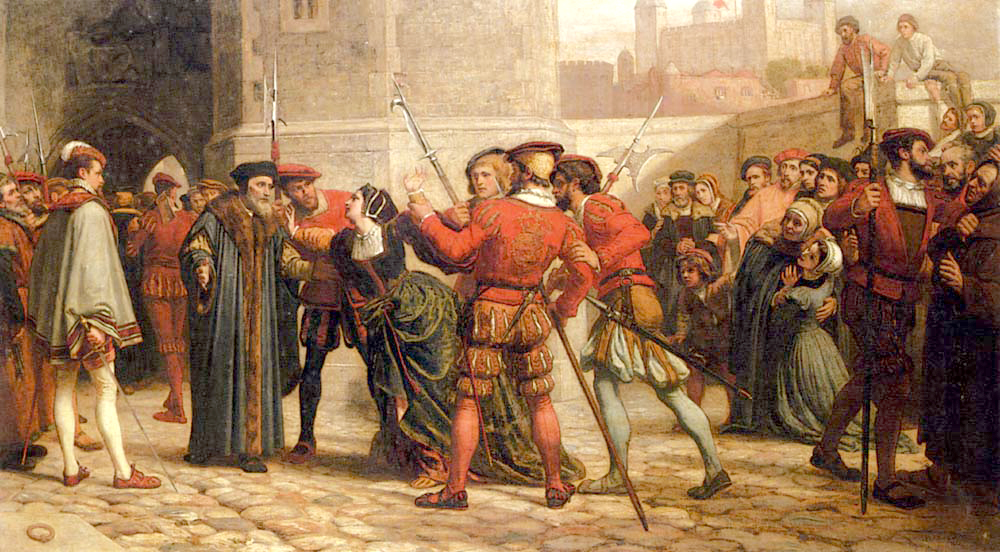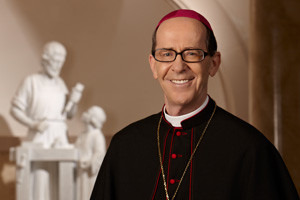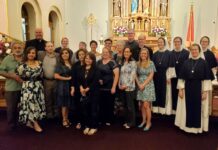
“Deep within his conscience man discovers a law which he has not laid upon himself but which he must obey. Its voice, ever calling him to love and to do what is good and to avoid evil, sounds in his heart at the right moment …. His conscience is man’s most secret core and his sanctuary. There he is alone with God whose voice echoes in his depths” (Gaudium et spes, #16).

Pope Francis’ Apostolic Exhortation on the joy of love in the family gives particular attention to this basic teaching on conscience that comes to us from the Second Vatican Council. That is why he asks pastors of the Church to “accompany with attention and care” all who have suffered any breach in the marriage bond, with the aim of “… restoring in them hope and confidence” (#291). Pastoral discernment is needed, along with patience and perseverance, to discover how “to enter into dialogue” with “those who mistrust marriage, put off commitments, or break those already made” (#293). We must learn “to identify elements that can foster evangelization and human and spiritual growth” (Ibid).

The Holy Father dedicates one section of Amoris Laetitia to freedom and conscience (#33-37), two concepts which are frequently misunderstood today. Pope Francis says (#34) “… it is easy nowadays to confuse genuine freedom with the idea that each individual can act arbitrarily as if there were no truths, values and principles to provide guidance, and everything were possible and permissible.”
EN ESPAÑOL: La necesidad de libertad para la orientación
Freedom and license are not the same. To be free does not mean we can do whatever we feel like doing, that we can disregard the duties we have to one another, within the family and beyond. Freedom is the opportunity and the duty to be whom God created us to be and to fulfill His plan for our life.
No matter how great the confusion between freedom and license, therefore, we clergy and others who have the privilege of assisting the faithful who face difficult marriage problems, need to keep in mind that they (#37) “are capable of carrying out their own discernment in complex situations. We have been called to form consciences, not to replace them.”
The Church helps people to form their consciences according to reason in conformity with what is loving and true. As the Catechism teaches (#1783), “The education of conscience is indispensable for human beings who are subjected to negative
influences and tempted by sin to prefer their own judgment and to reject authoritative teachings.”
Our conscience is so closely linked to our personal dignity and integrity that we are obliged to follow it, even if it is erroneous. In other words, our integrity requires that we do what we think is right, even if in reality our thinking is wrong. This is why St. Thomas More could honestly tell his beloved daughter Meg that it was important that she follow her conscience even if it disagreed with his. He also knew, however, that when we act on an erroneous conscience, even if done in good faith and thus without being guilty of sin, damage and harm still result, i.e. that we and others will suffer the consequences. Objectively evil acts always cause harm, just as cyanide always is poisonous. This is why we have an obligation to form our consciences in accord with the truth. To refuse this obligation is to cut oneself off from true freedom. For, as Jesus teaches (Jn 8:31f), “If you remain in my word, you will truly be my disciples, and you will know the truth, and the truth will set you free.”
Aware that many today, including many within the Church, have an imperfect grasp of God’s plan for marriage, the Holy Father urges pastors and other qualified members of the Church to help “them understand the divine pedagogy of grace in their lives and offer them assistance so they can reach the fullness of God’s plan …” (#297). We are to assist our people to have a livelier faith in Christ and to trust the truth, especially when it is misunderstood or even contradicted in popular culture.
In the next edition of The Catholic Sun, I shall take up the topic of formation of conscience in greater detail, drawing upon the Church’s teaching on this topic (especially as found in the Catechism, #1783-1785), and upon the Holy Father’s recent Apostolic Exhortation Amoris Laetitia, the Joy of love in the family.





![[VIDEO] Make Sunday feel like Sunday again](https://www.catholicsun.org/wp-content/uploads/2021/04/2021-YOUTUBE-BISHOP-MESSAGE-THUMBNAIL-ENGLISH-218x150.png)
